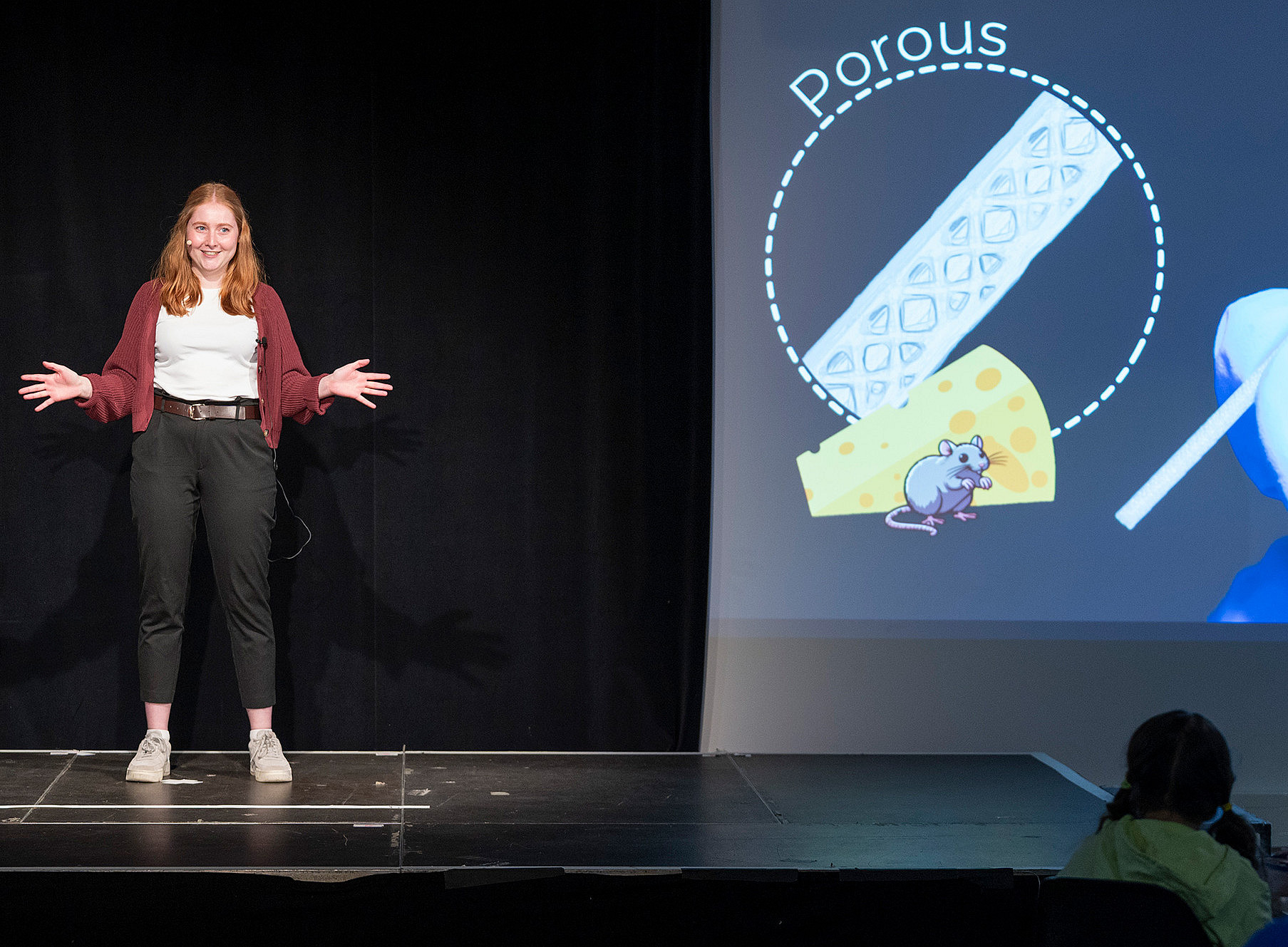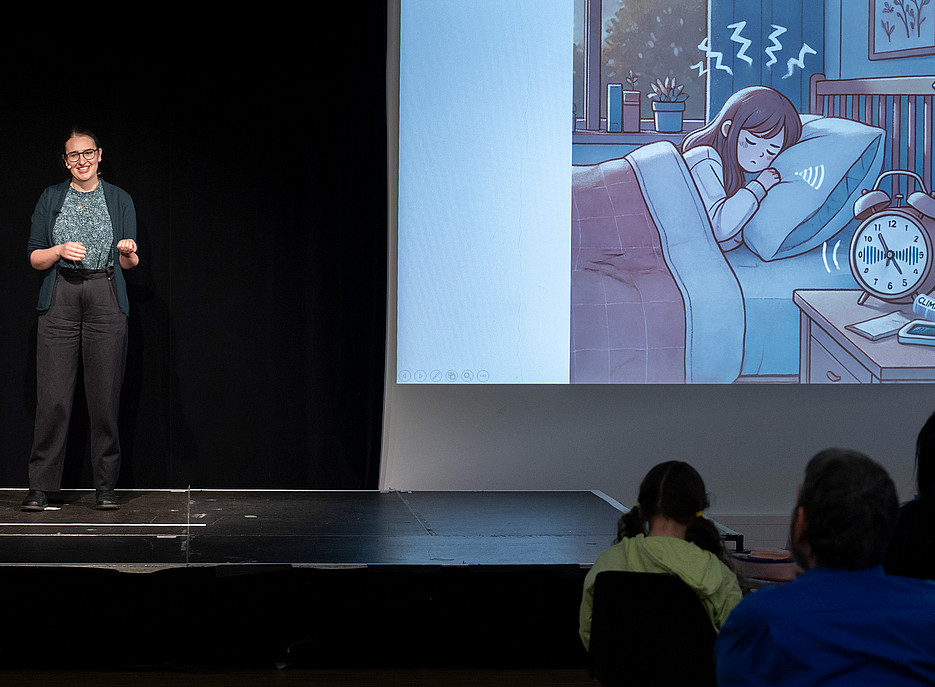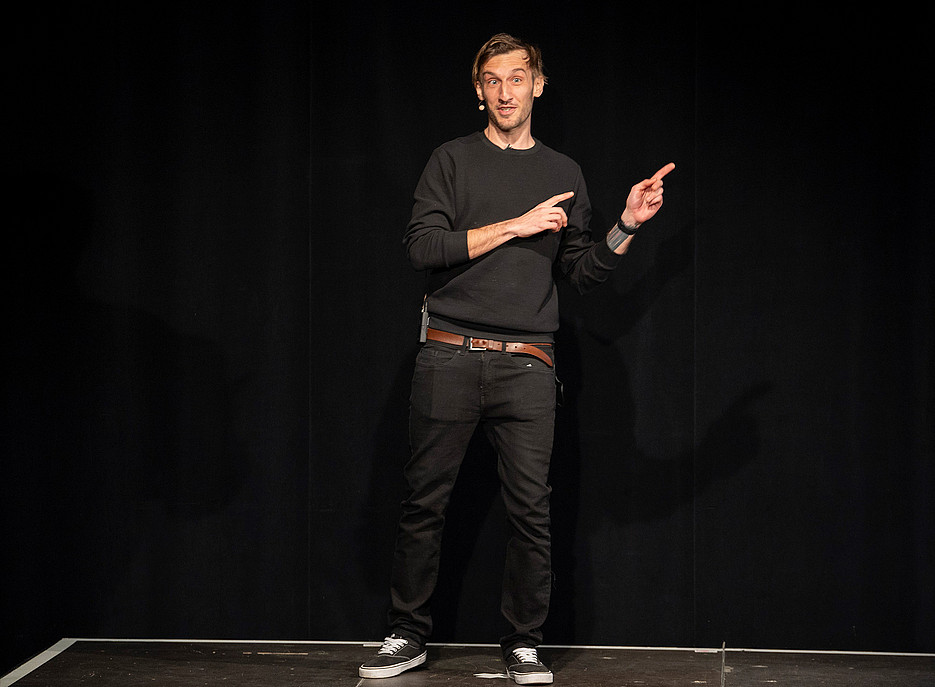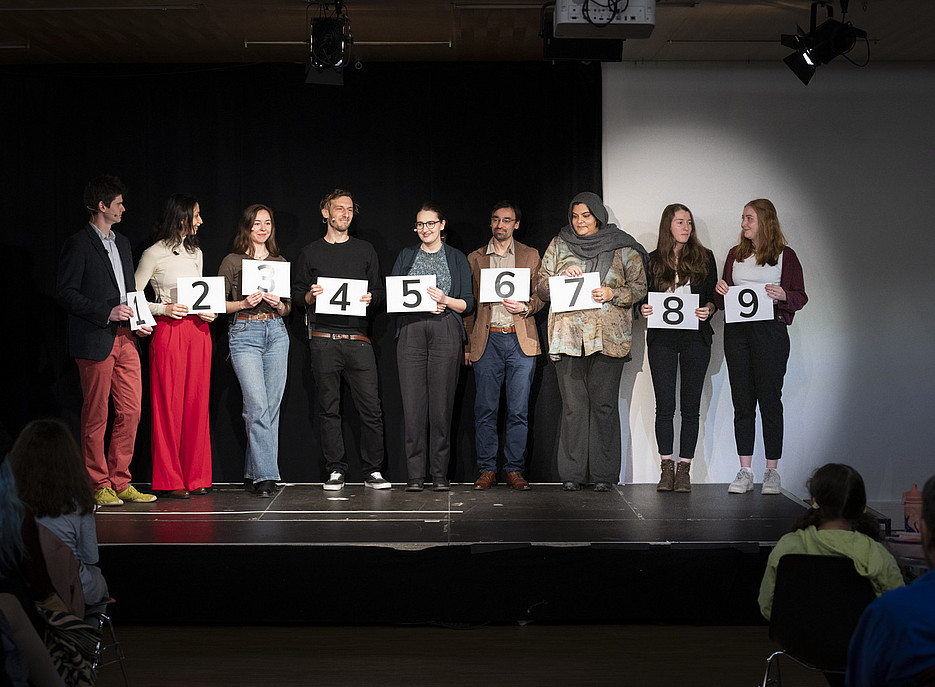This year's winner of the main prize at the 3MT Competition in Graz is Bianca Brandl. This was decided by the jury, consisting of Vice-Rector Markus Fallenböck, the Head of the Department of Communication and Public Relations, Linde Tuscher, and last year's 3MT winner Silvia Lasnik. Brandl is writing her dissertation at the Institute of Pharmaceutical Sciences at the University of Graz and works at the Research Centre Pharmaceutical Engineering GmbH (RCPE).
Of mice and molecules
How can the quality of life of people with a chronic illness be improved? This question is the driving force behind the research of Bianca Brandl, who won first prize at this year's 3MT Competition. In her doctoral thesis at the Institute of Pharmaceutical Sciences, she is looking at how personalised implants containing active ingredients can be produced using 3D printing, which then release a drug over a period of months. This form of medication would be a convenient alternative to taking tablets or regular injections for many sufferers. Adjusting the dose for each individual is a major challenge. "In my doctoral thesis, I am investigating how the release of active ingredients from these implants can be specifically regulated using 3D printing parameters. The aim is to personalise the daily dose released for each individual patient," says Brandl. How can this be explained? With a mouse in a Swiss cheese! This creative comparison convinced the 3MT jury. "If the cheese has a lot of holes, the mouse can easily escape. In the same way, a drug molecule can quickly reach the outside of a highly porous implant with a large free surface," explains Brandl. "If we wrap the cheese in foil, the mouse has to eat its way through first. The situation is similar if we print a membrane around the implant. Then the active ingredient molecule encounters a diffusion barrier, which means that we achieve a slower release and thus a lower daily dose," says the researcher. Her doctoral thesis could provide the basis for personalised implants to be produced in hospitals or pharmacies within a few minutes using a 3D printer.
Double victory in the audience vote
In addition to the jury, the audience also awarded a prize. The latter was won by environmental systems scientist Katharina Trimmel and sociologist Thomas Zenkl, who received an equal number of votes.
What does climate-friendly behaviour have to do with getting up in the morning? "For both, motivation is sometimes lacking and counter-arguments can be found. And yet, in the end, there is no way around it," says Katharina Trimmel. In her doctoral thesis, she is looking at how climate policy measures are perceived in society, what resistance and criticism there is, and how these can be countered. She made it perfectly clear to the audience what she meant by this with an inner monologue after the morning ringing of the alarm clock.
In his dissertation, Thomas Zenkl is researching the social impact of the spread of algorithmic systems and the automation of decisions, particularly with regard to social power relations. In his presentation, the sociologist illustrated to the audience how employees challenge technological transformations: "With the ABCs of resistance – avoidance, breaking, and constructive resistance – they outsmart their cyberboss, stand up to him, and turn him into an ally." Zenkl shows that it is not about rejecting technological progress, but about creating fairer, more respectful workplaces.
The international 3MT Competition is organised annually by the Coimbra Group, an association of particularly renowned and traditional European universities. An international jury will now select three of the winners from the regional competitions to go through to the final in Bologna on 12 June 2025. Last year, Silvia Lasnik, an English studies scholar, emerged as the overall European winner. This year, we are keeping our fingers crossed for Bianca Brandl!



